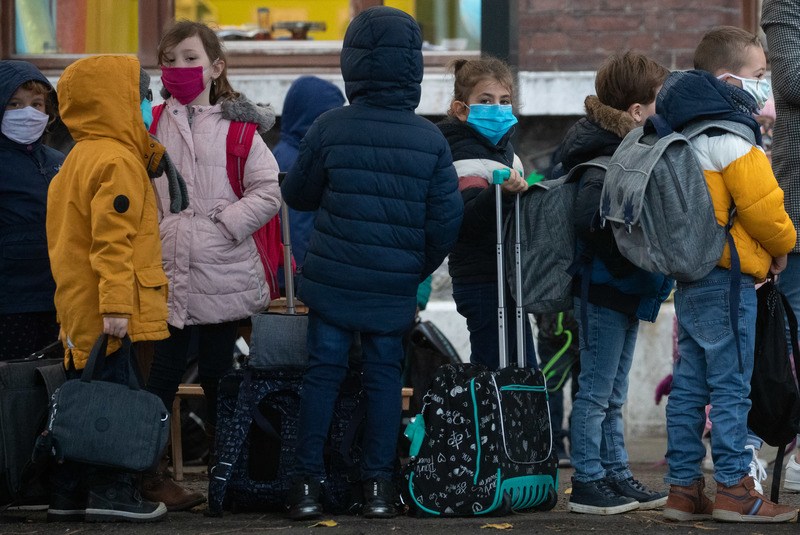Belgium should temporarily close its schools to break the transmission chain of the more infectious UK variant and avoid a third wave, according to OECD education expert Dirk Van Damme.
"Nobody likes to close the schools, but it is better to rip off the bandaid than to have a drawn-out process in which we might still be in pandemic mode in spring and summer," Van Damme said on HLN Live.
"Many European countries around us have already closed their schools," he said, adding that Belgium was lulled to sleep by a plateau of infections that was far too high when, in mid-December, he warned to close schools until the end of January.
Van Damme calls schools "an important transmission chain" for the virus, and stressed the importance of breaking that chain sooner rather than later. "Children who do not get sick themselves can still pass on the virus. We have to take measures to avoid stumbling from a second wave into a third one."
In light of the increasing number of recent outbreaks in schools - including with the UK variant - Federal Health Minister Frank Vandenbroucke stated that the authorities needed "to rethink the role of children, and how to protect them."
Related News
- Reopening hairdressers on 13 February is 'totally unfeasible,' says Van Ranst
- One covid infection should not close a school, says Ben Weyts
However, it is not easy, he explained on VRT programme 'De Zevende Dag', adding that the government wants to continue to keep education possible. "But school life can also be a source of the spread at some point, and then we have to think about how to deal with that."
According to the cabinet of Flemish Education Minister Ben Weyts, of the almost 4,000 schools in Flanders, some 20 schools are shut completely, and about 30 are partially closed.
"We will continue to do our utmost to keep as many schools open as possible," Weyts told VRT. "That is why we take decisive action where necessary with measures tailored to the local situation and based on the applicable scenarios."
"Never say never, but in the majority of schools, there is no major problem, and so we should not close those schools," he added.
However, investing in a better quality of distance learning can also help to make sure that education is guaranteed and that pupils do not fall behind when they cannot physically go to class, according to Van Damme.
"Abroad, there are more investments in adapted teaching materials and platforms," he said, adding that a different way of teaching is necessary in primary education, for example by still sending the most vulnerable pupils to school.
"We need to work in a more differentiated way, depending on the pupils' home situation for example," Van Damme said. "But just going to school, like children are doing today, is way too risky."
Maïthé Chini
The Brussels Times

